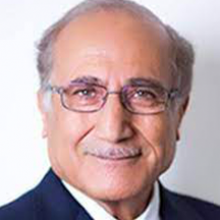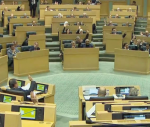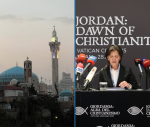You are here
In war against Daesh
Nov 16,2015 - Last updated at Nov 16,2015
Daesh struck during the last two weeks in Lebanon, Egypt and France. The terrorist act against the Russian plane was a loss for both Egypt and Russia.
In his explanation of the strategy against terrorist outlaws, King Abdullah talked about three different battles of different durations.
One is the military battle. Such a battle has been waged for almost a year and only in recent weeks it began to make a difference on the ground.
The sudden assertive participation of Russia not only caused a reshuffle in the structure of the regional and international powers, but emboldened the military campaign against Daesh in both Syria and Iraq.
As King Abdullah had inferred, the military battle would last for a year or eighteen months before Daesh is defeated.
Now that the terrorist movement has lost territories in both Syria and Iraq, it shifted to committing atrocious security attacks.
The war to ensure security may last from two to three years. While its danger is universal, the most critical collateral damage would be suffered by Arab and Muslim communities in the world.
The fear of terrorist acts would put all Arab and Muslim travellers to the Western Hemisphere and Europe under severe moral and physical pressure.
What could aggravate the situation even further is the possibility of giving anti-immigrant parties in Europe and the United States a boost.
Should these parties win elections, immigrants, refugees and even Arab citizens of these countries would be victims of backlashes.
The coming two or three years require maximum attention. A major source of concern is that conciliatory approaches in high emotional contexts fail to be heeded or be accepted.
In most countries of the world where Arab or Muslim communities live, there is tension between them and the majority. This is true to some degree in India, although the Indian media are trying to educate the population on how to live in harmony.
In China there was harmony that was interrupted by incidents when the Hui people clashed with the Chinese in some provinces.
The same applies to the Philippines, Thailand, Myanmar, the Central African Republic and other African countries.
If clashes in these places, in addition to Europe, continue, we are in for protracted wars that nobody needs. They will only serve to create new terrorist movements.
In his interview with Euronews last week, King Abdullah warned against a third world war.
He made it abundantly clear that this war is not part of the series of world wars that we had endured in the last century. He meant that its scope will span the planet, and this is true.
Muslims are found in every country of the world. They are mostly peaceful and hardworking people.
Christians and Muslims constitute about 58 per cent of the world population. Unless they learn to live in harmony and even cooperate, the world will not be able to live in peace and prosperity.
The candle that Jordan is trying to light in these dismal dark prospects should be lit by other countries as well.
We still have to wage a third war on ideology to win young people’s hearts and minds. More hatred, alienation and xenophobia will only add fuel to an already inflammable situation.
The writer, a former Royal Court chief and deputy prime minister, is a member of Senate. He contributed this article to The Jordan Times.













